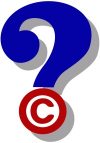Dear Doc:
When some big company just outright steals an inventor’s patented invention and makes zillions of dollars off of it, why can’t the inventor stop them? What gives?
Signed,
Little Guy
Dear LG:
The Doc has found a very good answer to your question. The Doc may not agree with everything the author says but, hey, at least this guy is not wearing faceprint and buffalo horns! So here ya go…(reprinted excerpts with permission of the author – the Doc recommends that you read the original).
_______________________________________________________________________
The Injunction Function – Why It Matters to Secure Patents as Property Rights
by: Adam Mossoff
Today, patent policy often seems mired in complex legal debates. For instance, the Patent Trial and Appeal Board (created in the America Invents Act of 2011) has led to five Supreme Court cases raising intricate questions and complex disputes in administrative law, the interpretation of statutes, and constitutional law. Longstanding issues in patent law, such as what makes a patented invention nonobvious or how to construe patent claims, seem quaint by comparison.
But these basic legal issues still matter, especially for the inventors, startups, and other companies working in the innovation industries that create and market the technologies that make modern life a veritable miracle by any historical standard. One such pressing legal issue is whether patent owners should receive injunctions to stop ongoing or willful infringement of their property rights. No one doubts that property owners should be secured against a trespasser who deliberately invades a farmer’s field or against a trespasser who repeatedly cuts down a landowner’s trees without permission to sell the lumber. Injunctions in these cases issue presumptively against the wrongdoers. Should owners of patents —property rights in inventions— receive the same protections against violations of their rights?
The Loss of the Key Legal Remedy for Patent Infringement
Until recently, courts answered this question with a resounding yes (as I explained in a recent article). This began to change after the Supreme Court’s 2006 decision in eBay v. MercExchange, in which the Supreme Court created a four-factor test for determining when injunctions should be issued as a remedy for ongoing or willful infringement of a valid patent. In the ensuing years, the rates at which injunctions have been issued to stop willful or ongoing patent infringement have dropped dramatically.
* * *
Why Injunctions Matter for the Innovation Economy
The negative economic impact of this legal development in the loss of injunctive remedies for patent infringement is clear. It is as predictable as if homeowners could no longer evict squatters or could not prevent continuing trespassers or encroachers on their land. If landowners could not protect their rights in these cases, their willingness and ability to develop their property, as well as their ability to sell their property in the marketplace, would be massively undermined. These interferences with their rights—permitted by the courts that are specifically charged with stopping them—would be discounted in any investment or purchase decision.
The same has occurred for inventors and companies working in the U.S. innovation economy. Predatory infringement by large companies with the financial and legal resources to make patent piracy profitable has become commonplace. Patents as an asset class have been devalued; venture capitalists and business partners working in the value chain are less willing to make investments in or pay licenses for uncertain and unenforceable property rights. Studies show that investments are shifting from patent-intensive sectors of the innovation economy, such as in medical devices and in enterprise software, to non-IP-intensive industries, like hotels and restaurants.
* * *
Reliable and effective property rights are a key factor in creating growing innovation economies and flourishing societies. This exclusive protection makes possible the contracts and other commercial dealings that comprise the free market. Historians, political scientists, economists, and other scholars have overwhelmingly recognized that this key economic insight applies as much to property rights in inventions as it does to other goods and services. This is what is at stake in the seemingly esoteric legal debate over whether patent owners should be secured by injunctions against willful and ongoing violations of their property rights.
_______________________________________________________________________
Adam Mossoff is a patent law expert who teaches at George Mason University, a Board Member at the Center for Intellectual Property Understanding, and a Senior Fellow at the Hudson Institute. This article is used with the author’s permission, for which the Doc thanks him.
Have you created new intellectual property? The attorneys at LW&H want to help you. Give them a call. You won’t be sorry, or maybe you will, but it won’t be their fault.
Until next month,
The “Doc”


